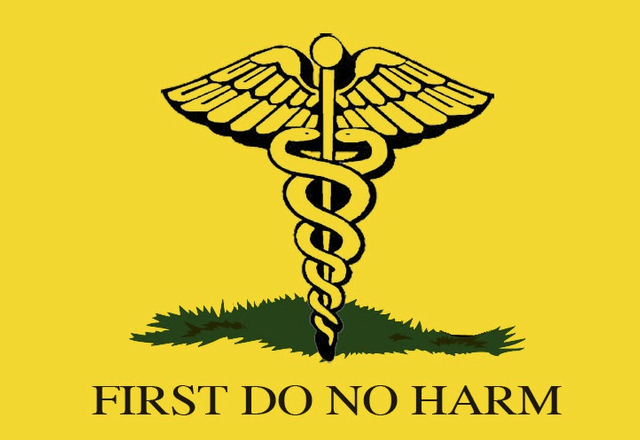In almost every medical school when the would-be docs graduate, they recite the Hippocratic Oath, pledging to help the sick and behave ethically. This solemn vow, in use since ancient Greek times, is named after the physician Hippocrates, father of Western medicine, although it probably wasn't written by him.

But a Hippocratic oath taken today is not the original oath. While some of the broad ideas are the same, several of the original requirements have been dropped. Originally, the Hippocratic oath was sworn before several gods. You'll occasionally find a contemporary version that invokes one god, but most of them do away with all references to supernatural beings.
Most controversially (to us moderns, anyway), the true oath forbids doctors from performing euthanasia and abortions:
"I will neither give a deadly drug to anybody who asked for it nor will I make a suggestion to this effect. Similarly, I will not give to a woman an abortive remedy."
Another section puts the kibosh on hooking up with patients (and, it seems to imply, with patients' family and friends):
"Whatever houses I may visit, I will come for the benefit of the sick, remaining free of all intentional injustice, of all mischief and in particular of sexual relations with both female and male persons, be they free or slaves."
Reflecting the Greek system of a mentor imparting medical knowledge to his pupil, the original oath also binds physicians to their teachers for life. If the teacher is ever strapped for cash, his protégé must fork it over. If the teacher has sons, the pupil must regard them as brothers and give them a medical education for free.
Almost all modern versions, including the AMA-approved rendition, do away with these inconvenient precepts. The documentary program NOVA reports:
According to a 1993 survey of 150 US and Canadian medical schools, for example,
- only 14 percent of modern oaths prohibit euthanasia,
- 11 percent hold covenant with a deity,
- 8 percent foreswear abortion, and
- a mere 3 percent forbid sexual contact with patients — all maxims held sacred in the classical version.